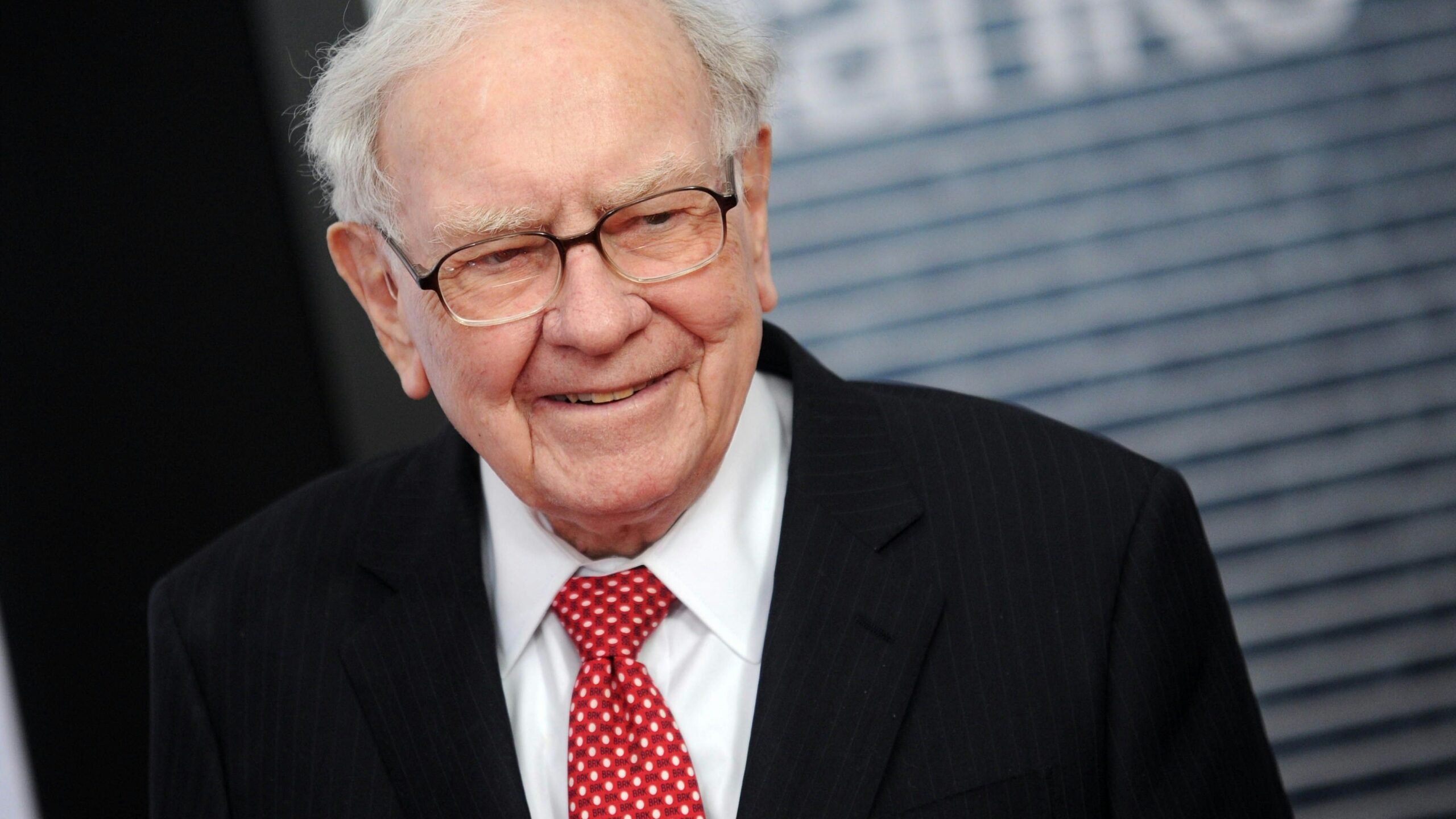When you hear the name Warren Buffett, what comes to mind? For many, it’s the image of a billionaire investor with a knack for turning dollars into fortunes. Known as the “Oracle of Omaha,” Buffett is one of the most successful investors in history, a philanthropist with a heart of gold, and a down-to-earth guy who loves cherry Coke and McDonald’s. His story is not just about wealth—it’s about discipline, patience, and a unique way of looking at the world. In this article, we’ll dive into who Warren Buffett is, how he built his empire, his investment philosophy, and why his wisdom matters to everyday Americans.
𝗪𝗵𝗼 𝗜𝘀 𝗪𝗮𝗿𝗿𝗲𝗻 𝗕𝘂𝗳𝗳𝗲𝘁𝘁?
Warren Edward Buffett was born on August 30, 1930, in Omaha, Nebraska. Now in his mid-90s, he’s the chairman and CEO of Berkshire Hathaway, a holding company that owns stakes in some of America’s biggest brands, like Coca-Cola, Apple, and GEICO. With a net worth consistently ranking him among the world’s richest people—estimated at over $130 billion as of 2025—Buffett’s journey from a small-town kid to a global icon is nothing short of remarkable.
But what makes Buffett stand out isn’t just his wealth. It’s his ability to make complex financial decisions seem simple and his commitment to living modestly despite his fortune. He still lives in the same Omaha house he bought in 1958 for $31,500, drives an unflashy car, and enjoys simple pleasures like playing bridge. For Americans, Buffett represents the idea that success doesn’t require extravagance—it requires smarts, hard work, and sticking to your principles.
𝗘𝗮𝗿𝗹𝘆 𝗟𝗶𝗳𝗲: 𝗧𝗵𝗲 𝗠𝗮𝗸𝗶𝗻𝗴 𝗼𝗳 𝗮 𝗠𝗼𝗻𝗲𝘆 𝗠𝗶𝗻𝗱
Buffett’s love for numbers and money started early. As a kid, he was already showing signs of his future brilliance. At age 11, he bought his first stock—three shares of Cities Service Preferred for $38 each. By high school, he was running small businesses, like delivering newspapers and selling golf balls, earning more than many adults. His entrepreneurial spirit was clear: he saved every penny and reinvested it.
Buffett’s father, Howard, was a stockbroker and later a congressman, which gave young Warren early exposure to the stock market. But it was his mentor, Benjamin Graham, who shaped his investment philosophy. Graham, the father of value investing, taught Buffett to see stocks as pieces of businesses, not just ticker symbols. This idea—buying good companies at a fair price—became the cornerstone of Buffett’s success.
After graduating from the University of Nebraska and earning a master’s degree from Columbia Business School, Buffett started his own investment partnership in the 1950s. By the time he was 30, he was a millionaire—a big deal in those days. His knack for spotting undervalued companies and holding onto them for the long haul set him apart from the get-rich-quick crowd.
𝗕𝘂𝗶𝗹𝗱𝗶𝗻𝗴 𝗕𝗲𝗿𝗸𝘀𝗵𝗶𝗿𝗲 𝗛𝗮𝘁𝗵𝗮𝘄𝗮𝘆: 𝗙𝗿𝗼𝗺 𝗧𝗲𝘅𝘁𝗶𝗹𝗲 𝗠𝗶𝗹𝗹 𝘁𝗼 𝗘𝗺𝗽𝗶𝗿𝗲
In 1965, Buffett took control of Berkshire Hathaway, a struggling textile company. Instead of sticking to textiles, he transformed it into a holding company, using its cash flow to buy stakes in other businesses. Over decades, Berkshire grew into a powerhouse, owning or investing in companies across industries—insurance (GEICO), railroads (BNSF), energy, and consumer goods (Coca-Cola, Dairy Queen, and more).
Today, Berkshire Hathaway is worth over $1 trillion, making it one of the most valuable companies in the world. Buffett’s strategy was simple but powerful: buy great businesses with strong management and hold them forever. He didn’t chase trends or fads. Instead, he focused on companies with lasting value—what he calls a “moat” that protects them from competitors.q
For the average American, Berkshire’s success shows what’s possible when you think long-term. It’s not about flipping stocks for a quick buck; it’s about investing in businesses you believe in, just like you’d believe in a family-owned store or a trusted brand.
𝗕𝘂𝗳𝗳𝗲𝘁𝘁’𝘀 𝗜𝗻𝘃𝗲𝘀𝘁𝗺𝗲𝗻𝘁 𝗣𝗵𝗶𝗹𝗼𝘀𝗼𝗽𝗵𝘆: 𝗦𝗶𝗺𝗽𝗹𝗲 𝗯𝘂𝘁 𝗡𝗼𝘁 𝗘𝗮𝘀𝘆
Buffett’s approach to investing is often summed up in his famous quote: “Rule No. 1: Never lose money. Rule No. 2: Never forget Rule No. 1.” But how does he do it? Here’s a breakdown of his core principles, explained in a way that anyone can understand:
1. 𝘽𝙪𝙮 𝘽𝙪𝙨𝙞𝙣𝙚𝙨𝙨𝙚𝙨, 𝙉𝙤𝙩 𝙎𝙩𝙤𝙘𝙠𝙨
Buffett doesn’t see stocks as numbers on a screen. To him, buying a stock means owning a piece of a real business. Before investing, he asks: Is this a company I’d want to own forever? Does it have a strong brand, loyal customers, and a competitive edge? This mindset helps him focus on quality over hype.
For example, Buffett’s investment in Coca-Cola in the 1980s wasn’t just about the stock price. He saw a global brand that people loved, with a product that wasn’t going anywhere. Today, Berkshire owns over 400 million shares of Coca-Cola, worth billions.
2. 𝙄𝙣𝙫𝙚𝙨𝙩 𝙞𝙣 𝙒𝙝𝙖𝙩 𝙔𝙤𝙪 𝙐𝙣𝙙𝙚𝙧𝙨𝙩𝙖𝙣𝙙
Buffett avoids businesses he doesn’t get. During the dot-com bubble of the late 1990s, he stayed away from tech stocks because he didn’t understand their business models. People called him old-fashioned, but when the bubble burst, he looked like a genius. This principle is a reminder for everyday investors: stick to what you know, whether it’s retail, food, or energy.
3. 𝘽𝙚 𝙥𝙖𝙩𝙞𝙚𝙣𝙩
Buffett is famous for saying, “The stock market is a device for transferring money from the impatient to the patient.” He holds investments for decades, letting them grow over time. For instance, he’s held shares of American Express since the 1960s. For Americans saving for retirement or their kids’ college, this is a powerful lesson: time is your friend in investing.
4. 𝘽𝙪𝙮 𝙖𝙩 𝙖 𝘿𝙞𝙨𝙘𝙤𝙪𝙣𝙩
Buffett loves a good deal. He looks for companies trading below their “intrinsic value”—what they’re really worth based on their earnings, assets, and growth potential. This “value investing” approach means buying when others are selling, like during market crashes. It’s like snagging a great car at a discount because the dealership is having a bad day.
5. 𝙁𝙤𝙘𝙪𝙨 𝙤𝙣 𝙩𝙝𝙚 𝙇𝙤𝙣𝙜 𝙏𝙚𝙧𝙢
Buffett doesn’t sweat daily stock price swings. He cares about a company’s performance over years, not days. This mindset helps him avoid panic-selling during market dips. For regular folks, it’s a reminder to stay calm when the news screams about a market crash—stick to your plan.
6. 𝘼𝙫𝙤𝙞𝙙 𝘿𝙚𝙗𝙩
Buffett is wary of borrowing money to invest. He believes debt can amplify losses just as much as gains. For individuals, this translates to living within your means and avoiding risky bets with borrowed cash.
These principles sound simple, but they require discipline. Buffett’s success comes from sticking to them through bull markets, bear markets, and everything in between.
𝗪𝗵𝘆 𝗕𝘂𝗳𝗳𝗲𝘁𝘁 𝗠𝗮𝘁𝘁𝗲𝗿𝘀 𝘁𝗼 𝗔𝗺𝗲𝗿𝗶𝗰𝗮𝗻𝘀
Buffett’s story resonates with the American dream. He didn’t inherit wealth or rely on insider connections. He built his fortune through hard work, learning, and a clear strategy. For everyday Americans—whether you’re a teacher, a small business owner, or a retiree—Buffett’s approach offers lessons for managing money wisely.
1. 𝙄𝙣𝙫𝙚𝙨𝙩𝙞𝙣𝙜 𝙛𝙤𝙧 𝙀𝙫𝙚𝙧𝙮𝙤𝙣𝙚
You don’t need to be a billionaire to invest like Buffett. His advice applies to anyone with a 401(k), IRA, or a few bucks to spare. Start small, invest in companies you trust, and let time do the heavy lifting. Index funds, which Buffett often recommends, are a low-cost way to own a slice of America’s best companies.
2. 𝙁𝙧𝙪𝙜𝙖𝙡𝙞𝙩𝙮 𝙋𝙖𝙮𝙨 𝙊𝙛𝙛
Buffett’s modest lifestyle is a reminder that wealth isn’t about flashy cars or mansions. He lives frugally, saving and investing instead of splurging. For Americans facing rising costs—housing, healthcare, education—this is a call to prioritize saving over spending.
3. 𝙂𝙞𝙫𝙞𝙣𝙜 𝘽𝙖𝙘𝙠
In 2006, Buffett pledged to give away 99% of his wealth through the Giving Pledge, a commitment he co-founded with Bill Gates to encourage billionaires to donate. Most of his fortune will go to the Bill & Melinda Gates Foundation to tackle global issues like poverty and disease. This inspires Americans to think about how they can give back, whether it’s donating money, time, or skills.
𝗕𝘂𝗳𝗳𝗲𝘁𝘁’𝘀 𝗜𝗻𝗳𝗹𝘂𝗲𝗻𝗰𝗲: 𝗧𝗵𝗲 𝗔𝗻𝗻𝘂𝗮𝗹 “𝗪𝗼𝗼𝗱𝘀𝘁𝗼𝗰𝗸 𝗳𝗼𝗿 𝗖𝗮𝗽𝗶𝘁𝗮𝗹𝗶𝘀𝘁𝘀”
Every year, thousands flock to Omaha for Berkshire Hathaway’s annual shareholder meeting, dubbed the “Woodstock for Capitalists.” Buffett and his longtime partner, Charlie Munger (who passed away in 2023), answered questions for hours, sharing wisdom with humor and humility. These meetings, now led by Buffett and his team, are a chance for regular investors to learn from the best.
The event reflects Buffett’s commitment to transparency and education. He wants everyday people to understand investing, not just Wall Street pros. His annual letters to shareholders, available online, are like free masterclasses in finance, filled with insights and witty anecdotes.
𝗖𝗵𝗮𝗹𝗹𝗲𝗻𝗴𝗲𝘀 𝗮𝗻𝗱 𝗖𝗿𝗶𝘁𝗶𝗰𝗶𝘀𝗺𝘀
No one’s perfect, not even Buffett. He’s faced criticism over the years. Some say Berkshire’s size makes it harder to achieve the stellar returns of its early days. Others point to mistakes, like his initial reluctance to invest in tech giants like Amazon or Google. In recent years, he’s admitted to missing opportunities in tech but has made up for it with massive bets on Apple.
Buffett’s also been criticized for not diversifying Berkshire’s portfolio enough or for holding too much cash—sometimes over $100 billion. But he defends this, saying cash gives him flexibility to pounce on deals when markets crash. For every critique, Buffett has a reasoned response, showing his ability to learn and adapt.
𝗪𝗵𝗮𝘁’𝘀 𝗡𝗲𝘅𝘁 𝗳𝗼𝗿 𝗕𝘂𝗳𝗳𝗲𝘁𝘁 𝗮𝗻𝗱 𝗕𝗲𝗿𝗸𝘀𝗵𝗶𝗿𝗲?
At 94, Buffett is still sharp, but he’s planned for the future. He’s named Greg Abel as his successor to lead Berkshire Hathaway. Investors trust Abel to carry on Buffett’s legacy, but the question remains: can anyone replicate the Oracle’s magic?Buffett’s recent moves show he’s still active.
In 2024, he trimmed Berkshire’s stake in Apple and increased investments in energy and insurance. He’s also been vocal about economic issues, warning about inflation and the national debt—concerns that hit home for Americans facing higher prices.
𝗟𝗲𝘀𝘀𝗼𝗻𝘀 𝗳𝗼𝗿 𝗘𝘃𝗲𝗿𝘆𝗱𝗮𝘆 𝗔𝗺𝗲𝗿𝗶𝗰𝗮𝗻𝘀
So, what can you take away from Warren Buffett’s life? Here are some practical tips inspired by the Oracle:
✓ Start Early: The sooner you invest, the more time your money has to grow. Even $50 a month in a low-cost index fund can add up over decades.
✓ Stay Educated: Read about companies, markets, and personal finance. Buffett spends hours reading every day—follow his lead.
✓ Be Disciplined: Stick to a budget, avoid debt, and don’t chase hot stocks or crypto fads.
✓ Think Long-Term: Plan for your future, whether it’s retirement, buying a home, or leaving a legacy for your kids.
✓ Give Back: Find ways to support your community, even if it’s small acts of kindness.
𝗖𝗼𝗻𝗰𝗹𝘂𝘀𝗶𝗼𝗻: 𝗧𝗵𝗲 𝗢𝗿𝗮𝗰𝗹𝗲’𝘀 𝗘𝗻𝗱𝘂𝗿𝗶𝗻𝗴 𝗪𝗶𝘀𝗱𝗼𝗺
Warren Buffett’s life is a testament to the power of patience, discipline, and common sense. He’s not just a billionaire—he’s a teacher who’s shown millions how to build wealth and live meaningfully. For Americans, his story is a reminder that success doesn’t come from shortcuts or luck. It comes from making smart choices, staying true to your values, and thinking long-term.
Whether you’re just starting to save or managing a hefty portfolio, Buffett’s principles can guide you. So, grab a cherry Coke, channel your inner Oracle, and start investing in your future today.

